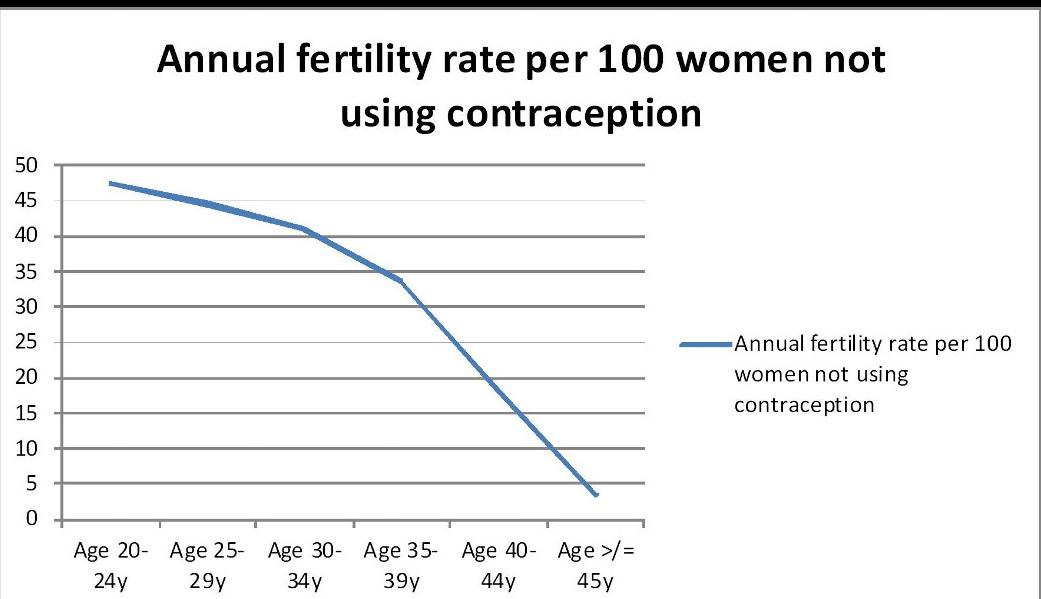Frequency of sexual intercourse and chances of conception
Chance of conception
- people who are concerned about their fertility should be informed that over 80% of couples in the general population will conceive within 1 year if:
- the woman is aged under 40 years and
- they do not use contraception and have regular sexual intercourse
Of those who do not conceive in the first year, about half will do so in the second year (cumulative pregnancy rate over 90%).
Fertility rates reduce with increasing maternal age

Cumulative probability of conceiving a clinical pregnancy by the number of menstrual cycles varies with respect to age of woman
Cumulative probability of conceiving a clinical pregnancy by the number of menstrual cycles attempting to conceive in different age categories (assuming vaginal intercourse occurs twice per week)
Age category (years) | Pregnant after 1 year (12 cycles) (%) | Pregnant after 2 year (24 cycles) (%) |
19-26 | 92 | 98 |
27-29 | 87 | 95 |
20-34 | 86 | 94 |
35-39 | 82 | 90 |
Inform people who are using artificial insemination to conceive and who are concerned about their fertility that:
- over 50% of women aged under 40 years will conceive within 6 cycles of intrauterine insemination (IUI)
- of those who do not conceive within 6 cycles of intrauterine insemination, about half will do so with a further 6 cycles (cumulative pregnancy rate over 75%).
Frequency and timing of sexual intercourse or artificial insemination
- people who are concerned about their fertility should be informed that vaginal sexual intercourse every 2 to 3 days optimises the chance of pregnancy
- people who are using artificial insemination to conceive should have their insemination timed around ovulation
Reference:
Related pages
Create an account to add page annotations
Annotations allow you to add information to this page that would be handy to have on hand during a consultation. E.g. a website or number. This information will always show when you visit this page.